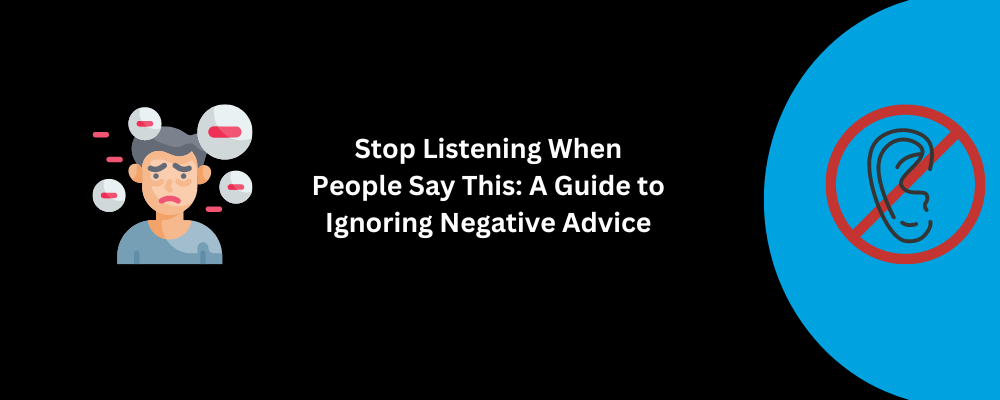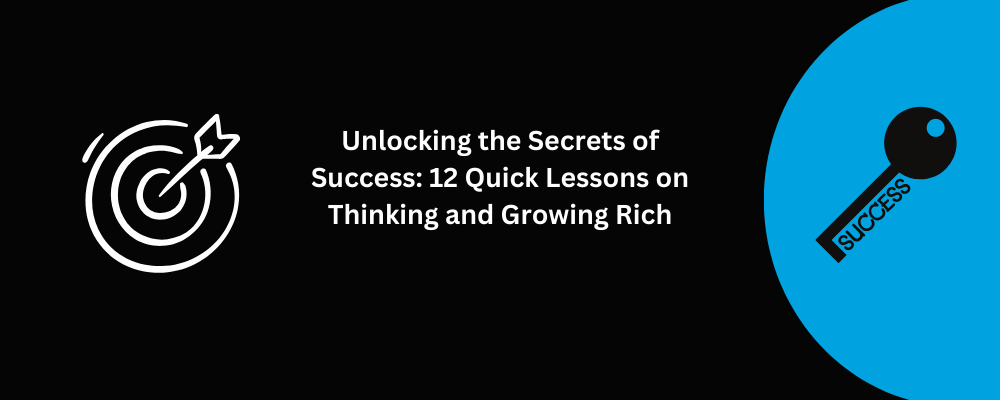In the journey of self-improvement and personal growth, we often encounter various opinions and pieces of advice from those around us. However, not all advice is created equal, and sometimes, listening to certain remarks can hinder rather than help our progress. In this article, we’ll delve into the topic of when to stop listening to people’s advice, particularly when it comes to negativity and discouragement.
Why Negative Advice Can Hold You Back
Negative advice, although often well-intentioned, can have detrimental effects on our mindset and goals. Here’s why it’s essential to discern when to tune out negative remarks:
- Undermines Confidence: Constant exposure to negative comments can erode our self-confidence and belief in our abilities.
- Limits Potential: Listening to discouraging advice may lead us to underestimate our potential and settle for mediocrity.
- Creates Fear of Failure: Negative remarks can instill a fear of failure, preventing us from taking risks and pursuing our aspirations.
- Stifles Creativity: Constant criticism can stifle our creativity and innovation, hindering our ability to think outside the box.
Identifying Negative Advice
Not all advice that sounds negative is inherently harmful. However, it’s crucial to identify when feedback crosses the line into discouragement. Here are some signs that indicate you may be receiving negative advice:
1. Lack of Constructive Criticism
Constructive criticism aims to provide feedback for improvement without belittling or demoralizing. If the advice lacks constructive elements and focuses solely on flaws or shortcomings, it may be negative.
2. Emphasis on Limitations
Negative advice often emphasizes limitations rather than possibilities. Statements like “You’ll never succeed because…” or “It’s too risky to pursue that” are indicative of a negative mindset.
3. Disregard for Your Goals
When advice disregards your goals and aspirations, it may not have your best interests at heart. Negative advice often steers you away from your objectives rather than supporting your journey towards them.
4. Emotional Impact
Negative advice tends to evoke negative emotions such as fear, doubt, or insecurity. If you feel demotivated or discouraged after receiving advice, it may be worth reassessing its validity.
When to Stop Listening
Knowing when to stop listening to negative advice is essential for preserving your mental well-being and staying focused on your goals. Here’s when it’s time to tune out:
1. Trust Your Instincts
If deep down, you believe in your capabilities and vision, trust your instincts over external opinions. You know yourself better than anyone else.
2. Surround Yourself with Positivity
Surround yourself with supportive individuals who uplift and encourage you rather than bringing you down with negativity.
3. Focus on Solutions, Not Problems
Instead of dwelling on criticism, focus on finding solutions and learning from setbacks. Use negative feedback as an opportunity for growth rather than a roadblock.
4. Stay Committed to Your Goals
Remain steadfast in pursuing your goals and aspirations, despite any discouraging remarks you may encounter along the way. Your determination will propel you forward.
Conclusion
In a world filled with opinions and advice, it’s crucial to discern between constructive feedback and negative remarks. Knowing when to stop listening to negative advice is essential for maintaining a positive mindset and staying on course towards your goals. By trusting your instincts, surrounding yourself with positivity, and staying committed to your aspirations, you can silence the naysayers and forge your path to success.
FAQs
1. How do I differentiate between constructive criticism and negative advice?
Constructive criticism focuses on areas for improvement while offering solutions and encouragement. Negative advice tends to emphasize limitations without providing constructive feedback.
2. What if the negative advice comes from someone close to me, like a family member or friend?
It can be challenging when negative advice comes from those close to us. In such cases, it’s essential to communicate openly and assertively about your goals and boundaries.
3. Is it ever beneficial to listen to negative advice?
While some negative feedback may offer insights for improvement, it’s crucial to evaluate its impact on your mindset and goals. If it undermines your confidence or stalls your progress, it’s best to prioritize positivity.
4. How can I develop resilience against negative advice?
Building resilience involves cultivating a strong sense of self-belief, surrounding yourself with supportive influences, and reframing challenges as opportunities for growth.
5. What role does mindset play in handling negative advice?
Mindset plays a significant role in how we interpret and respond to feedback. A growth mindset views challenges as opportunities for learning and development, whereas a fixed mindset may perceive criticism as a reflection of inherent flaws.
Check Out: The Secret of the Ages by Robert Collier Masterclass




